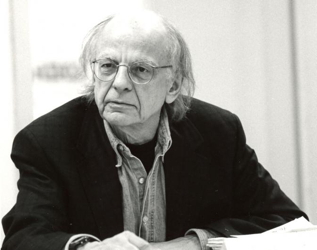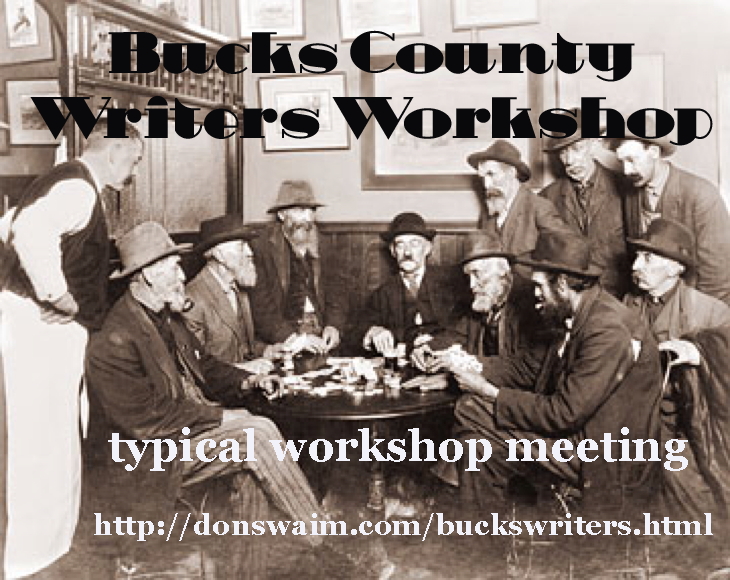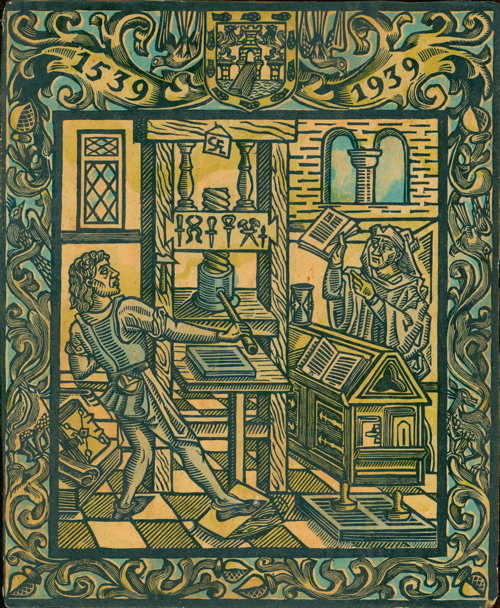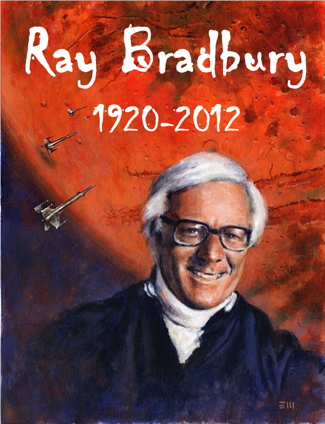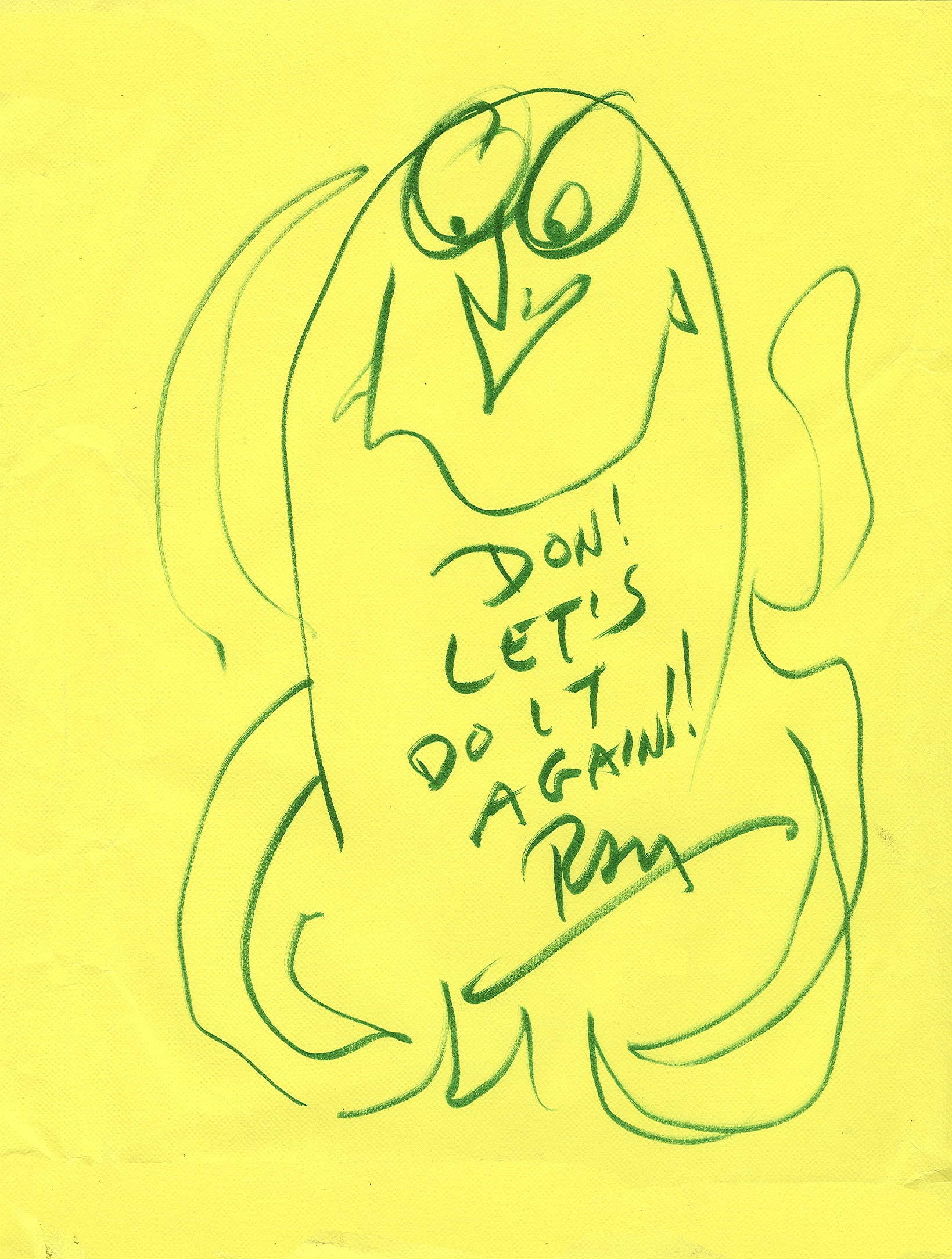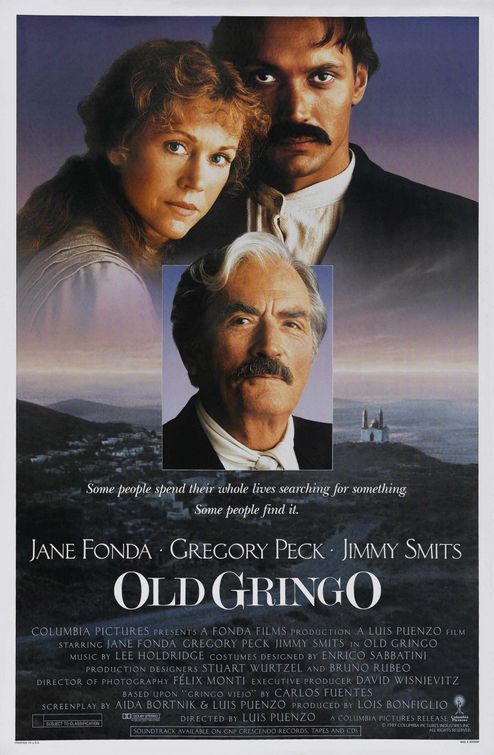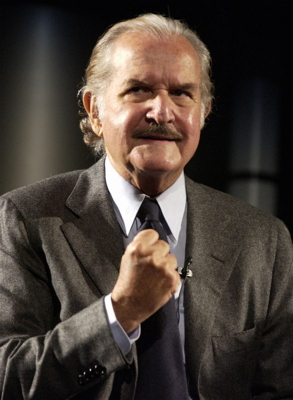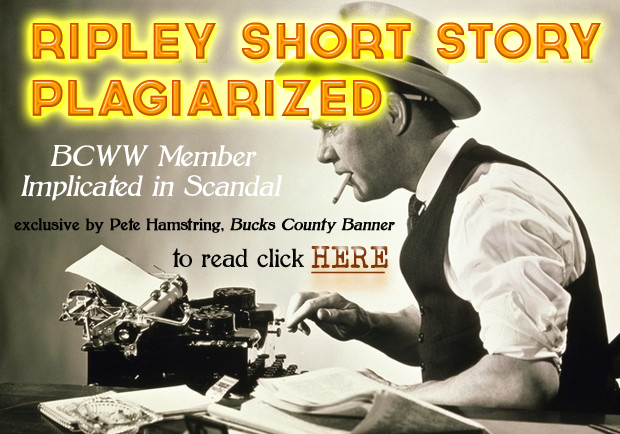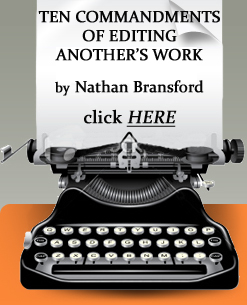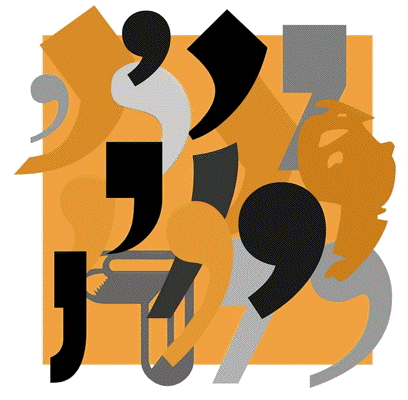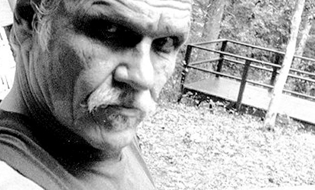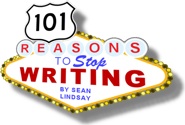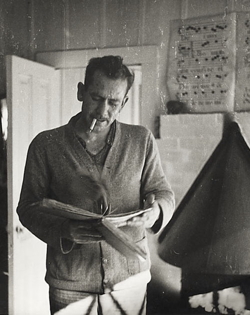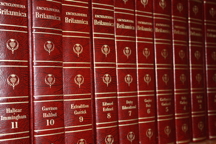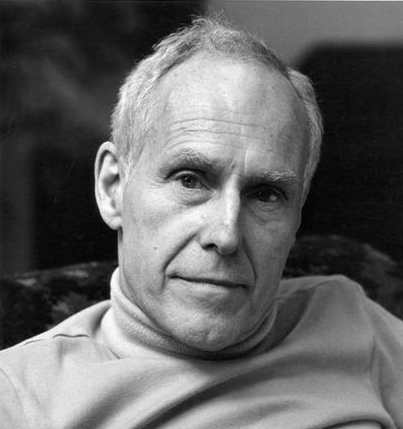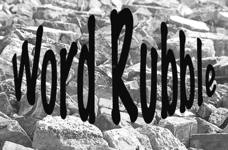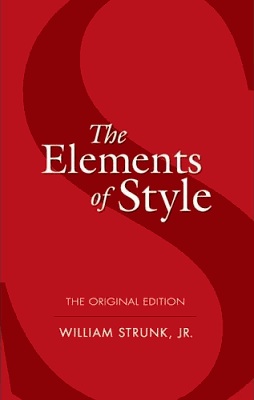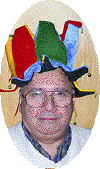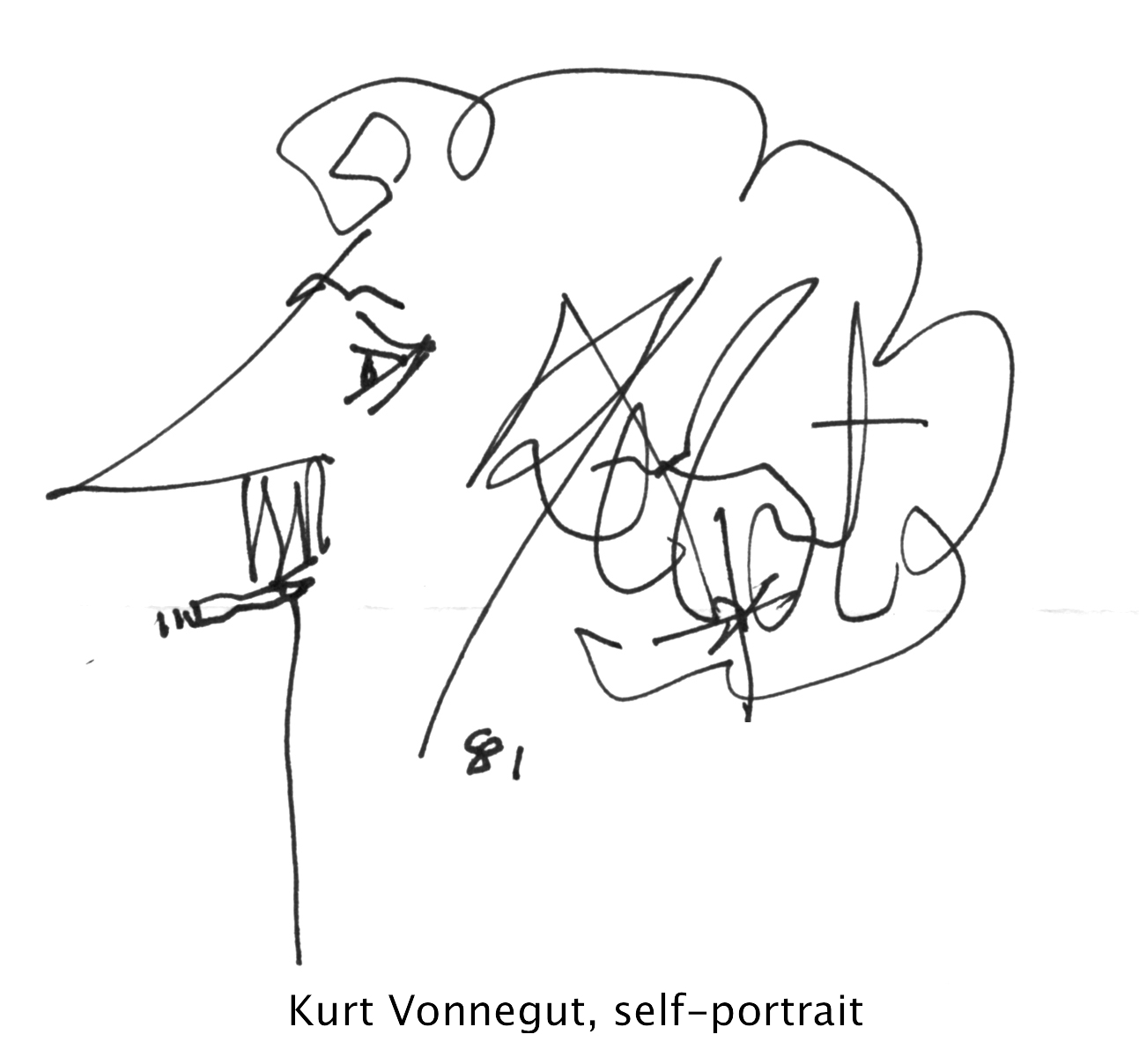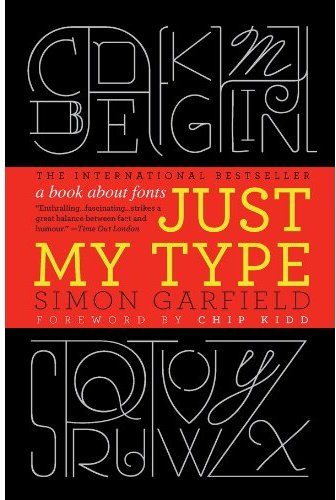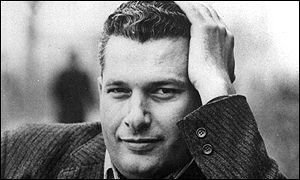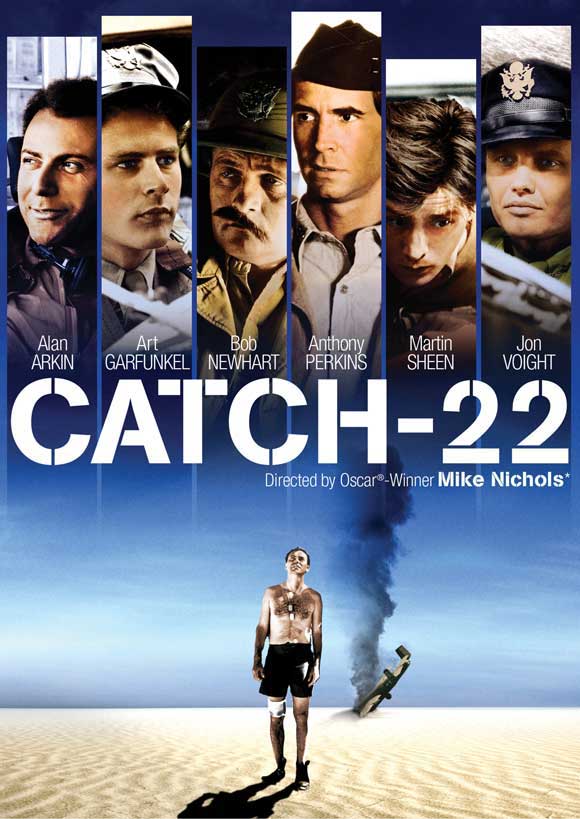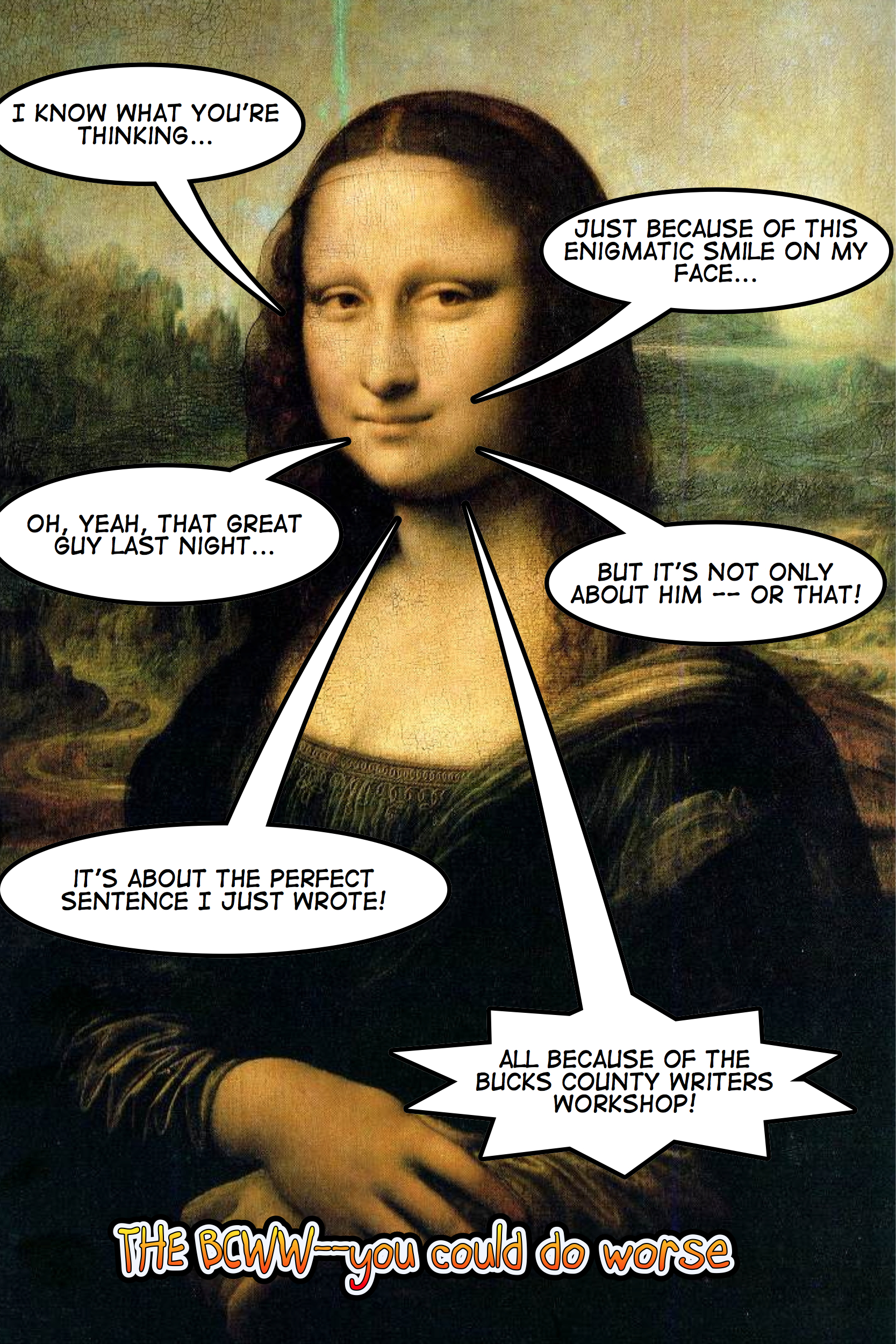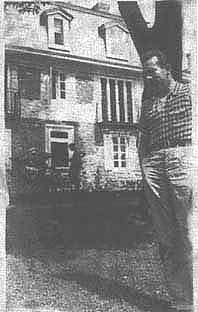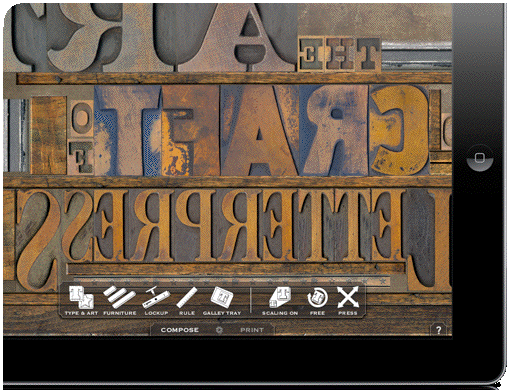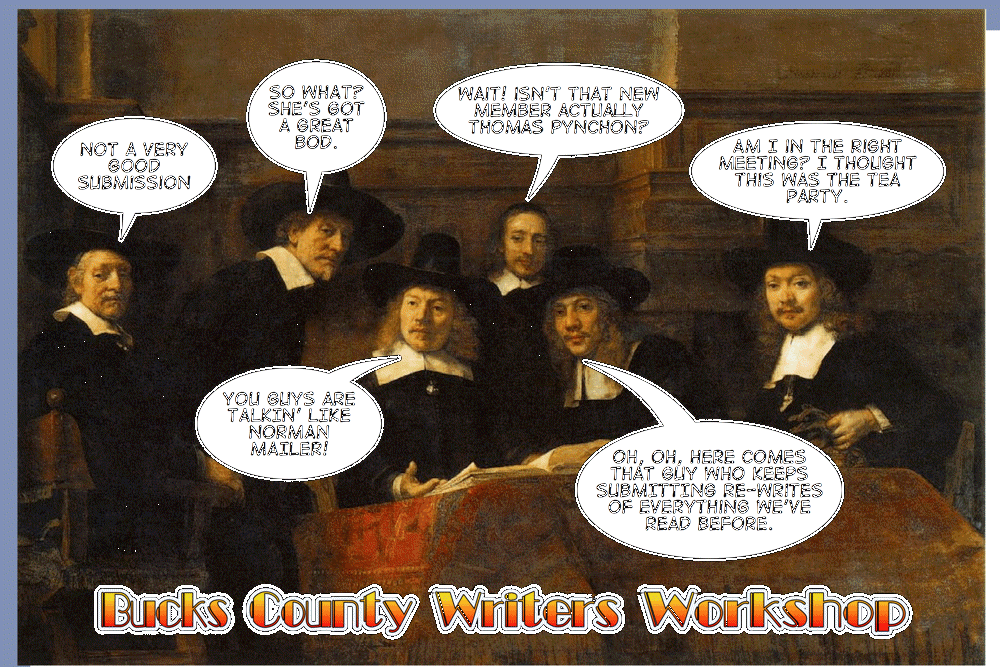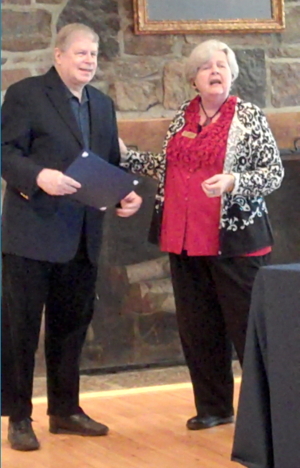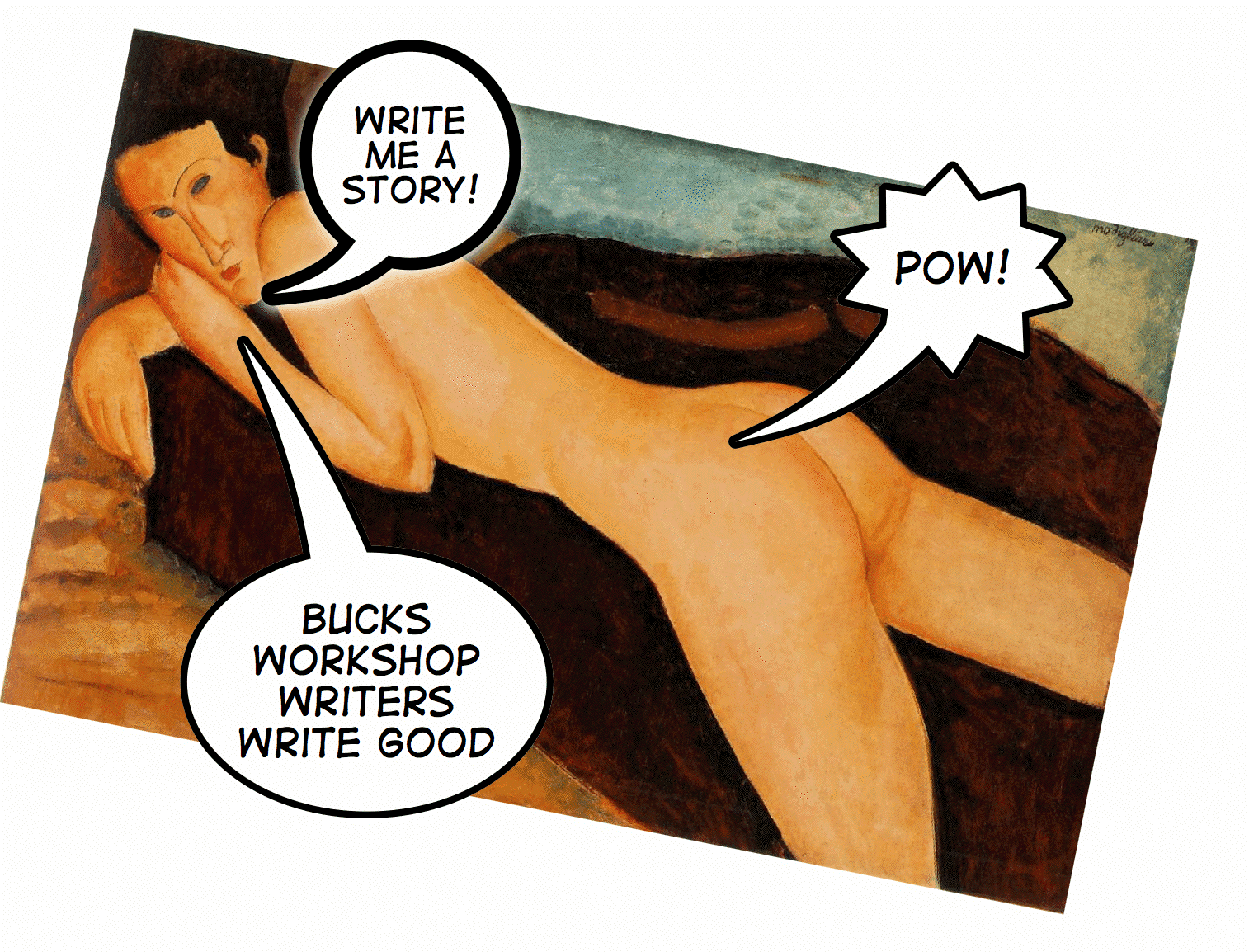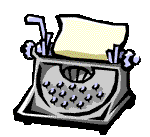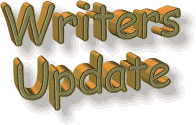
The Bucks County Writers Workshop
Article Archives #11 2011-13
CLASSIC STEPHEN VINCENT BENET RADIO SHOWS ONLINE. Benet who? A two-time Pulitzer Prize winner who wrote, not only supernatural stories, but about the Civil War. His best known works are John Brown's Body and "The Devil and Daniel Webster." He wrote militant anti-Nazi broadcasts in the 40s. Hard to find these anywhere else. Scroll to the bottom of Don Swaim's illustrated essay about Benet and Ambrose Bierce: FABULISTS BENET AND BIERCE.
But you have -- even though you may not have known it. His name was EDWARD DE GRAZIA who died on April 11, 2013 at the age of eighty-six. He fought for free speech against the reactionaries who--until de Grazia took them on--had censored our books and films.
Ed de Grazia's victories over the agents of suppression were manifest, and among the literary figures he championed were Henry Miller, William S. Burroughs, and publisher Barney Rosset. A champion of the First Amendment, de Grazia changed America's obscenity laws forever--we hope.
Don Swaim interviewed de Grazia on the occasion of his massive account about the law of obscenity and the assault on genius, Girls Lean Back Everywhere.Don's five-part broadcast with de Grazia can be heard here: listen
Here's Don's complete, unedited interview with de Grazia at Ohio University's Wired for Books: listen (runs 43:55)
NEW PUBLISHERS AUTHORS TRUST: THEMSELVES. Even some big name authors, such as David Mamet, are now self-publishing. By Leslie Kaufman in The New York Times.
GOOD FIT FOR SMALL SCREENS: SHORT STORIES. Short story collections are experiencing a resurgence. By Leslie Kaufman in The New York Times.
SPACE INVADERS. Why you should never, ever use two spaces after a period. By Farhad Manjoo in Slate. "What galls me about two-spacers isn't just their numbers. It's their certainty that they're right." (Majoo)
HOW TO MAKE A LIVING AS A WRITER. Bad news. "...here's the sad, scary irony -- you will almost never make a decent, full-time, support-a-family living as a professional writer." By Erik Deckers.
HOW LONG SHOULD YOU KEEP TRYING TO GET PUBLISHED? By Jane Friedman, bourbon-drinking editor and former publisher of Writer's Digest. Great tips for aspiring writers.
YEAR 2012 IN WRITING AND LANGUAGE. Fascinating compendium from the LawProse website.
14 CREATIVE WRITING BLOGS YOU SHOULD BE READING. Via TheEnglishWeb.com.
BEST-WORST TYPOS, MISTAKES, & CORRECTIONS OF 2012. By Jen Doll at The Atlantic Wire
MOST COMMON GRAMMAR GAFFES (AND HOW TO AVOID THEM). By Guy Kawasaki at Lifehacker.com.
See photos from the BCWW's haiku contest gathering HERE
_________________________
Best known for her 1952 novel Love is a Many-Splendored Thing, Han Suyin was born in China to an Asian father and a Belgian mother. She lived in Switzerland and wrote in English and French. Don Swaim interviewed her on the occasion of her book The Enchantress: LISTEN. For the unedited interview on Wired for Books listen here.
SHUT UP AND PLAY NICE: HOW THE WESTERN WORLD IS LIMITING FREE SPEECH. Legal scholar Jonathan Turley suggests that free-speech, once a near-absolute in the west -- is being jeopardized by those wanting to restrict anti-religious expression. InThe Washington Post.
STEPHEN KING'S 'MISERY' BACK FROM THE DEAD IN BUCKS COUNTY. A theatrical adaptation of the suspenseful King novel by Oscar-winner William Goldman debuts from November 24-Deccember 8 at the Bucks County Playhouse. No word yet on the cast (which starred Kathy Bates and James Caan in the 1990 movie version). By Patrick Healy in The New York Times.
A little-known reviewer in The New York Times Sunday Book Review of August 17, 2012, launched an ugly, mean-spirited attack on author Alix Ohlin, whose new novel and a short story collection were just published. Read Don Swaim's case for literary civility HERE
THE JOYS AND HAZARDS OF SELF-PUBLISHING ON THE WEB.
An informative guide by Alan Finder in The New York Times.
___________________________
And the First Printed Book in the Americas
A rare woodcut found at a flea market in New Jersey led to this illustrated essay by Don Swaim. Read it HERE
GORE VIDAL (1925-2012)
Don Swaim interviewed Gore Vidal twice, the first sometime in the 1970s for a CBS-FM broadcast called "Crosstalk." The interview went so badly -- Vidal being intimidating and insulting -- that it was broadcast only once and then destroyed. The second interview in 1992 went much better. For the actual broadcasts: LISTEN. For the raw, unedited interview from Wired for Books listen here
TAKE THE BCWW LITERARY QUIZ
See if your literary knowledge is up to par by clicking HERE
Ray Bradbury was more than a science-fiction writer. He was also a literary treasure. Don Swaim interviewed Ray twice:Green Shadows White Whale. 7/20/92. Listen
40th Anniversary of Fahrenheit 451. 9/18/93. Listen
UCLA 90th Birthday Tribute in 2010 HERE Don's unedited 1992 Wired for Books interview HERE Don's unedited 1993 Wired for Books interview HERE
The great Mexican author -- and diplomat -- Carlos Fuentes, who died in Mexico City on May 15, 2012, at the age of eighty-three, published some twenty books. But for Ambrose Bierce fans he'll always be known for The Old Gringo, in which the fictional Bierce is caught up in a love triangle in revolutionary Mexico. In the film version, Bierce was portrayed by Gregory Peck, Jimmy Smits as one of Pancho Villa's generals, and Jane Fonda as the love interest. Ambrose Bierce Site founder Don Swaim interviewed Fuentes in 1992: LISTEN. For the unedited interview from Wired for Books listen HERE
__________________________________________________
FANFARE FOR THE COMMA MAN
Here, Ben Yagoda in The New York Times tells us what's right and wrong with the humble comma, when to use it, (and why The New Yorker abuses it ridiculously).
HARRY CREWS (1935-2012)
Delightfully profane, deliciously Southern, Harry Crews was one of a kind. While not to everyone's taste, Harry -- with his hard drinking, troubled life -- was virtually a cult hero among writers. Don Swaim interviewed him on the occasion of his novel Body. LISTEN. For the unedited interview from Wired for Books listen here
The Baltimore-born feminist poet won the National Book Award and a MacArthur Foundation "genius" grant. Don Swaim interviewed her on the occasion of her book Blood, Bread, and Poetry: LISTEN. For the unedited interview from Wired for Books listen here.
The reasons are right on. Those thinking they might actually become writers should be discouraged. A workshop won't make a writer, and shuffleboard's a lot easier.
Pamela Redmond Satram offers twenty-two more reasons why not to write HERE.
SIX TIPS ON WRITING BY JOHN STEINBECK
Valuable tips from Steinbeck's 1975 Paris Review intervew at brainpickings.net
THE ENCYCLOPEDIA BRITANNICA 1768-2012
After nearly two and a half centuries, the world's definitive reference book
is going out of print -- and will be available only on line.
THE FORGOTTEN LITERARY GENIUS
Pal of Lawrence of Arabia
Intimate of Ernest Hemingway
Hero of the Spanish Civil War
Lover of Tokyo Rose
Defier of the communist witch hunts
to read his incredible story click HERE
BARNEY ROSSET (1922-2012)
As head of Grove Press, Barney Rosset was one of the most courageous men in America. He openly defied the censors -- risked fines and imprisonment to beat them all in the courts -- and went on to publish Samuel Beckett, Jean Genet, Che Guevara, D.H. Lawrence, Henry Miller, and William Burroughs. He was undeterred even as his office was firebombed and he received death threats. Don Swaim interviewed Rosset in 1984: LISTEN. For the unedited interview from Wired for Books listen here
WHY MODERN NOVELISTS NEED TO WATCH THEIR WEIGHT. And I'm not talking about body fat! Robert McCrumm blames the computer -- in The Guardian.
AVOID IT!
Instead, re-read Strunk's
HERE
An Occasional Column on Writing
The famed photojournalist, whose subjects ranged from Marilyn Monroe to Malcolm X, was born in Philadelphia. A leading light in the golden age of news photography, Eve Arnold died in London at the age of 99. Don Swaim interviewed her twice:On the occasion of her book In America, 12/23/83: LISTEN
On Marilyn Monroe: An Appreciation, 10/14/87: LISTEN
Hoban was known for his innovative sci-fi novel Riddley Walker and for his children's books, such as the "Frances" series. Although he lived in London, Hoban was born in Lansdale, PA. Don Swaim interviewed him in 1988: LISTEN. For the unedited interview from Wired for Books listen here
THE SLUSH READER'S ADVICE. Sarah E. Olson reads incoming manuscripts for Apex Magazine. Here, she explains to hopeful writers what they must do to get published.
CLICHÉ FINDER. Worried that you might have written a cliché but aren't sure? Or perhaps you actually want to use a cliché. If either applies, type in a key word and this site will produce all the clichés associated with that word!
Journalist and novelist Tom Wicker, author of twenty books, was a political cluminist for The New York Times for twenty-five years. Don Swaim interviewed him in 1984: LISTEN. For the unedited interview from Wired for Books listen here
As a science-fiction writer, the Hugo and Nebula award-winner Anne McCaffrey was best known for her series of young-adult novels, "Dragonriders of Pern." Don Swaim interviewed her in 1988: LISTEN. For the unedited interview from Wired for Books listen here. Don interviewed the North Carolina novelist and poet, who died on January 20, three times:
NEW BIO OF KURT VONNEGUT
And So It Goes -- Kurt Vonnegut: A Life by Charles J. Shields is the first major biography of this popular writer. Even though Vonnegut's family withheld permission to quote directly from Vonnegut's letters, Shields' bio is more than 500 pages.
Don Swaim's 1981 interview with Vonnegut: LISTEN
NOTE: This is a poor interview from the perspective of the interviewer, whose ham-handed, awkward questions first produced only grudging responses by a curmudgeonly Vonnegut. By the second half, however, the interview takes off, with illuminating responses by Vonnegut.
R.I.P.
BANNED BOOKS WEEK. Sep. 24-Oct. 1, 2011. As writers, we're obligated to celebrate the freedom to read and to fight those who would censor our work. Intellectual freedom--the freedom to access information and express ideas, even if the information and ideas might be considered unorthodox or unpopular--provides the foundation for Banned Books Week.
FIVE STEPHEN KING QUOTES EVERY WRITER SHOULD HEED. "Prolific horror author Stephen King once called himself the 'literary equivalent of a Big Mac and fries,' but these Stephen King quotes prove the author of Carrie and The Shining is no hack." By Karen Murdock at ScreenJunkies.com.
Frightening... frightening...
click to enlarge
Incredible book art by Isaac Salazar of Artesia, NM. Day job: accountant.
Isaac says he never took an art class in his life.
More of his work HERE
WHEN QUOTING VERSE, ONE MUST BE TERSE. With the copyright laws, how much can you get away with in quoting, without permission, someone else's verse or song lyrics in your work? David Orr addresses this question in The New York Times.
...which we take for granted on our computers, no matter how flamboyant they can be -- thanks to Apple's Steve Jobs, who was so fascinated by calligraphy that he made exotic fonts a mainstay of the Macintosh computer, later widely imitated. This according to Simon Garfield, whose new book, Just My Type, explores the history and subtle powers of type, beginning in the early days of Gutenberg and ending with the most adventurous digital fonts. In both print and ebook at: Amazon.com
JOSEPH HELLER
Catch-22's 50th Anniversary
Joseph Heller graced the world with his satirical anti-war, anti-bureaucratic novel -- and gave the English Language a new word. Fifty years after the book was first published, comes a trade paperback anniversary edition, a first biography, and a memoir by Heller's daughter.The BCWW's Don Swaim recorded two multi-part broadcasts with Heller plus a special report on Catch-22's 25th anniversary:Catch-22: 50th Anniversary Edition by Joseph Heller. Introduction by Christopher Buckley with accompanying essays. Simon & Schuster Just One Catch: A Biography of Joseph Heller by Tracy Daugherty. St. Martin's Press Yossarian Slept Here: When Joseph Heller Was Dad, the Apthorp Was Home, and Life Was a Catch-22 by Erica Heller. Simon & Schuster God Knows10/8/84. listen No Laughing Matter (with Speed Vogle) 3/24/86. listen 25th anniversary report on Catch-22 (1986) listen AlsoSwaim's uncut CBS interview with Heller, 1984 (length: 33:43): here
Swaim's uncut CBS interview with Heller & Speed Vogle, 1986 (length: 23:43): here
2011 BULWER-LYTTON FICTION CONTEST RESULTS. Dedicated to the man who wrote, "It was a dark and stormy night." Sue Fondrie of Oshkosh, WI, had the 26-word winning entry: "Cheryl's mind turned like the vanes of a wind-powered turbine, chopping her sparrow-like thoughts into bloody pieces that fell onto a growing pile of forgotten memories." Click above for the other winners and runners-up.
FAKE NAME GENERATOR. Tired of searching the phone book (do they still make phone books?) for a name for your character? This site's random algorithms create literally billions of different and unique names. Check it out.
HOW TO WRITE WITH STYLE. By Kurt Vonnegut. An eight-point tipsheet on creative writing, some points of which are pithy: "Have guts to cut."
THE PRICE OF TYPOS. "...the vigilance of even the great houses has flagged, and typos are everywhere. Curious readers now get regular glimpses of raw and frank and interesting mistakes that give us access to unedited minds." By Virginia Heffernan at The New York Times.
SEVEN THINGS YOUR ENGLISH TEACHER LIED TO YOU ABOUT. "Rules that your English teacher grafted onto your very soul. Rules that, as a novelist, you can and should break." By Megg Jenson at WordPress.com.
HOW TO STYLE NUMBERS. When you write a number, do you use figures or spell it out? Here's what to do. (Incidentally, numbers are always spelled out in dialogue.)
SIX KILLER WRITING TIPS. From homophones to apostrophes, these tips will help you write with more accuracy.
WHO OR WHOM? Even some grammatical experts get confused. Here's a simple trick to determine when to use each word.
THE BORDERS ARE CLOSING. WE'RE STUCK HERE. "Once a book was something you took with you to the bathroom to keep from getting bored during the process of elimination. We don't even do that any more. Now you take your smartphone instead -- as 39 percent of us admit." By Alexandra Petri, Washington Post.
click to enlarge
Steinbeck, Holicong, PA
JOHN STEINBECK IN
BUCKS COUNTY
by Don Swaim"...somewhere in Pennsylvania..." was the way Steinbeck put it as he decamped in the rural Bucks County home of famed playright George S. Kaufman in 1937. How Steinbeck and Kaufman crafted the award-winning theatrical version of Of Mice and Men at Barley Sheaf Farm is detailed here
exclusive photos of Steinbeck only on the BCWW site
If you love old books and great vintage printing you can set type, virtually, on this $6 iPad app that replicates an actual hand printing press -- with period wood type faces, galley trays, inks, papers. Educational, entertaining -- really prints! Go to LetterMpress
SPAM E-BOOKS PLAGUE AMAZON'S KINDLE STORE. The scammers either use an already published e-book, change the title, author and cover, and pass it off as a completely different book -- or they use software that packages public domain content, equips it with a cover and title, and submits it for sale.
THE DEATH OF NEWSPAPERS AND JOURNALISM. "We are losing a peculiar culture and an ethic. This loss is impoverishing our civil discourse and leaving us less and less connected to the city, the nation and the world around us. The death of newsprint represents the end of an era. And news gathering will not be replaced by the Internet." By Chris Hedges at OpEdNews.
THE CASE—PLEASE HEAR ME OUT—AGAINST THE EM DASH. "Modern prose doesn't need any more interruptions—seriously." By Noreen Malone in Slate.
PHILIP ROTH WINS MAN BOOKER INTERNATIONAL PRIZE. The $100,000 prize adds another accolade to Roth's five-decade career that includes a Pulitzer Prize. Could the Nobel be next?
"THE RISE OF LOGICAL PUNCTUATION". For at least two centuries, it has been standard practice in the United States to place commas and periods inside of quotation marks. But for how long? By Ben Yagoda at Slate.
WHAT EDITORS WANT: A MUST READ FOR SUBMITTING TO LITERARY MAGAZINES This excellent article describes the nuts and bolts of magazine submission. By Lynne Barrett, editor of The Florida Book Review, in The Review Review.
HOW DO YOU AUTOGRAPH (OR GET AUTOGRAPHED) AN EBOOK? Incredibly, in this digital world they've found a way! By Stephanie Rosenbloom in The New York Times.
Swaim, Kaler
BCWW's DON SWAIM WINS PEARL S. BUCK NATIONAL FICTION AWARDDr. Anne Kaler made the presentations under a portrait of Pearl S. Buck at the historic Buck house on April 10, 2011. Three others won prizes in the youth division. Don's winning story, "Dearest Friend, Annie," which focuses on the relationship between Walt Whitman and Anne Gilchrist, was vetted by the Bucks County Writers Workshop. Buck, author of The Good Earth, won the Nobel Prize for literature, and her Perkasie, Pennsylvania, home is a National Historic Landmark. She is buried on the grounds. Pearl S. Buck International
COLLEGEVILLE, PA: J.D. SALINGER SLEPT HERE. Just don't tell anyone. By Michael Winerip in The New York Times.
WHY DO WRITERS ABANDON NOVELS? Success, despair, and getting lost in the words are some of the reasons. By Dan Kois in The New York Times.
RETINITIS WORDEMA. Defined by the BCWW's Alan Shils as: "Inflammation of the retinas due to the overload of useless words projected upon them. (Similar to pulmonary, or any other edema, characterized by excess of fluid accumulation.) The only remedy for retinitis wordema is extensive editing; namely, to perform surgery on the writing, not the eyes."
EDWIN MARKHAM: THE MAN WHO IRKED BIERCE (and wrote about zombies)
Perhaps the poet Markham, who wrote "The Man with the Hoe," only anticipated the future zombie craze without really thinking about it -- but he did drive Ambrose Bierce up the wall. Newly posted essay by Don Swaim. Read HERE.
HUCKING IT UP. By Gene Weingarten in The Washington Post: "Were you as bothered as I was by all the pseudo-intellectual whining over a book publisher's decision to issue a new version of Huckleberrry Finn with the n-words deleted? I actually like the idea. As far as I am concerned, this sort of sensitive editing should be applied to other works of fiction, as well, to bring them more in line with contemporary standards of taste and propriety."
BRIGHT SUN EXTINGUISHED: ODE TO NORMAN MAILER. Don Swaim's satirical ebook was vetted by the Bucks County Writers Workshop -- and was just published by Amazon.com. Can be read on all Macs, PCs, iPhones, or any other digital device.
REYNOLDS PRICE 1933-2011Good Hearts 7/4/88. listen.
The Tongues of Angels 7/10/91. listen.
Blue Calhoun 7/6/92. listen.
WILFRID SHEED 1930-2011. The distinguished critic and essayist died January 19, 2011, at the age of eighty. Author of Essays in Disguise and some twenty other books, Sheed tells Don Swaim about a pingpong game Sheed had with J.D. Salinger: listen.
THE DEADLIEST BOOK REVIEW. It was signed with six bullets by a killer who never even knew the author. By Peter Duffy in The New York Times Book Review.
THE FIRST MYSTERY NOVELIST. For years it was thought to be Wilkie Collins, author of The Moonstone (1868). But the writer Paul Collins in The New York Times Book Review has concluded that the first mystery novel was The Notting Hill Mystery (1862) written by... Let's let Collins tell us.
Bucks County Writers Workshop
Top of Page
